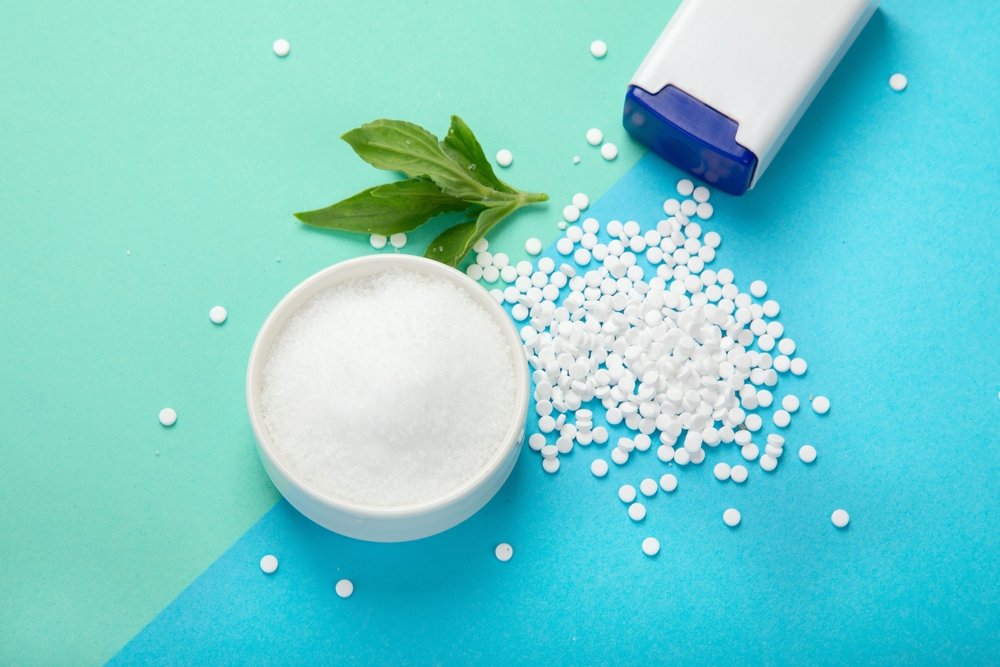


The importance of managing sugar intake is critical for people living with diabetes. This is because elevated blood sugar levels in diabetes can lead to various complications, including cardiovascular issues, nerve damage, and kidney problems.
However, managing sugar intake doesn’t mean giving up sweetness entirely. This is where sugar alternatives come into play.
In this blog post, we’ll look at various sugar alternatives and their potential role in diabetes management. We’ll explore what they are, how they affect blood sugar levels, and their pros and cons.
We’ll also look at how to choose the right sugar alternative with help from your doctor or dietician, and the need for moderation – so that you can have better diabetes management and overall health.
Diabetes is a complex metabolic disorder characterized by high blood sugar levels. It is essential to grasp the intricacies of diabetes and its relationship with sugar to comprehend the significance of sugar alternatives in diabetes management.
Blood sugar, or glucose, is crucial to the body’s energy production. It serves as the primary energy source for cells, particularly the brain. However, the body must regulate blood sugar levels carefully.
Insulin is the substance produced by the pancreas that facilitates glucose absorption into cells, regulating blood sugar levels. In diabetes, this regulation mechanism falters, leading to high blood sugar levels (hyperglycemia).
Diabetes comes in two primary forms. Type 1 involves insufficient insulin production in the body, while Type 2 is largely about insulin resistance.
According to the Centers for Disease Control and Prevention (CDC), “It’s important to keep your blood sugar levels in your target range as much as possible to help prevent or delay long-term, serious health problems.”
According to Shiza Arshad et al., writing in Science Direct, “Many studies showed that excessive use of added sugar increases the risk of high cholesterol, blood pressure, hypertension, type 2 diabetes, obesity, and heart diseases.”
If you have a combination of ailments such as obesity, cholesterol, diabetes, and hypertension – along with other hereditary factors – they can all have a multiplicative impact on the heart.
Cutting down on sugar intake is good for diabetes, for sure. But it can also help with controlling blood pressure, obesity management, and keeping cholesterol levels in check.
Sugar alternatives or substitutes are used instead of regular table sugar (sucrose) to sweeten foods and beverages. These alternatives are favored because they provide sweetness with fewer or no calories, making them attractive for diabetics.
Sugar alternatives can be broadly categorized into two main types: natural and artificial.

These alternatives are derived from natural sources and often have fewer calories than regular sugar. One typical example is Stevia, extracted from the Stevia plant leaves. It is known for its high sweetness and zero-calorie content.
Honey and jaggery, while calorie-dense compared to the previous options are considered natural sugar alternatives due to their unique flavor profiles and potential health benefits.
According to Karen Veazey, writing in Medical News Today, “Jaggery is an unrefined natural sweetener. Some people consider it a superfood because it has more vitamins and minerals and a lower sucrose content than sugar. However, as jaggery is still a type of sugar, it is best to consume it in moderation.”
Artificial sugar alternatives are chemically synthesized compounds designed to mimic the sweetness of sugar without the calories.
One well-known artificial sugar substitute is Sucralose. It is approximately 600 times sweeter than sugar and is heat-stable, making it suitable for cooking and baking.
Other examples include Aspartame, Saccharin, and Acesulfame-K (often used with other sweeteners).
Understanding how sugar alternatives affect blood sugar levels is crucial for individuals with diabetes who strive to maintain stable glucose levels. Here’s how they work:
Sugar alternatives are often chosen because they are low in carbohydrates or calorie-free. Since carbohydrates are the primary factor influencing blood sugar levels, alternatives like Stevia, Sucralose, and Aspartame are generally considered relatively safe for people with diabetes. They do not substantially raise blood sugar levels when consumed, making them valuable tools in glucose management.
The Glycemic Index (GI) is a scale that measures how quickly carbohydrates in a particular food raise blood sugar levels. Foods with a high GI cause rapid spikes in blood sugar, while those with a low GI lead to slower and more controlled increases. Regular table sugar, for instance, has a high GI of 65-70, causing swift blood sugar elevation. When consuming a sugar alternative, a dietician can tell you about its potential effect on GI.
Sugar alternatives offer a range of benefits for individuals with diabetes, but they also come with certain drawbacks and considerations.
Here are their main advantages to diabetics:
Among the main disadvantages are these:
In diabetes management, the adage “everything in moderation” holds tremendous significance, including sugar alternatives.
According to Mayo Clinic, “Some studies have found that substituting sugar-sweetened food and beverages with those that have been artificially sweetened may not be as beneficial as once thought. This may be especially true when artificial sweeteners are consumed in large amounts. But more research is needed.”
Consultation with doctors is crucial. Every individual with diabetes has unique needs. Doctors or qualified dieticians can tailor a diabetes management plan for you with a suitable sugar alternative in the right quantities.
Remember, diabetes management also extends beyond just sugar intake. A balanced diet rich in fiber, lean proteins, and healthy fats is vital in regulating blood sugar. Sugar alternatives should complement, not replace, a nutritious diet.

Some diabetics with great self-discipline learn to manage life with little to no sugar, while others may find sugar reduction challenging. Thankfully, sugar alternatives provide a valuable middle ground, offering sweetness without the same glycemic effects.
Recognize the pros and cons of sugar substitutes and understand their impact on your blood sugar levels. Most importantly, seek the guidance of your doctor or a professional dietician.
The ultimate goal is maintaining optimal blood sugar control while enjoying a satisfying and balanced diet, supporting overall health and well-being.